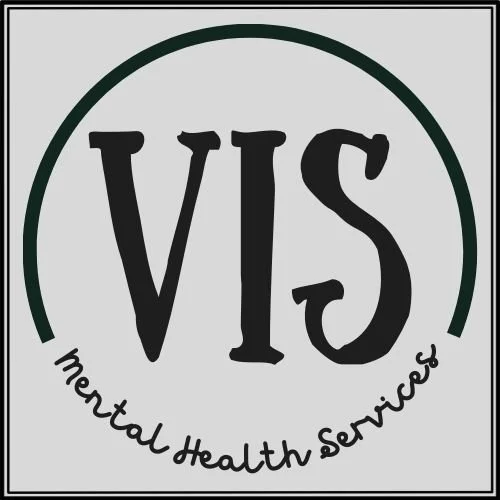
Let’s explore services!
Individual THERAPY
Individual therapy is a collaborative process that helps individuals explore their thoughts, emotions, and behaviors in a safe, supportive environment. Whether you're facing specific challenges like anxiety, depression, or trauma, or simply seeking personal growth, therapy offers tools for better understanding yourself and improving your overall well-being. Guided by a trained professional, therapy can foster healing, build resilience, and empower you to make meaningful changes in your life.
Couples THERAPY
Couples therapy is a form of psychotherapy designed to help partners improve their relationship by addressing issues such as communication problems, conflicts, emotional disconnection, infidelity, or major life transitions. Guided by a trained therapist, couples explore their patterns of interaction, uncover underlying emotions or unmet needs, and work collaboratively to build healthier, more supportive dynamics. Whether partners are seeking to resolve long-standing issues or simply strengthen their bond, couples therapy provides a structured, safe space to foster understanding, rebuild trust, and create more satisfying relationships.
Ketamine THERAPY
Ketamine therapy is an innovative treatment that uses low doses of the anesthetic ketamine to support mental health, most commonly for depression, anxiety, PTSD, and other mood disorders, especially when traditional therapies haven’t worked.
Ketamine therapy offers a wide range of powerful benefits, especially for individuals struggling with treatment-resistant mental health conditions. One of its most notable advantages is the rapid relief it can provide from depression and suicidal thoughts, often within hours or days, compared to the weeks traditional antidepressants may take. It has also shown effectiveness in treating PTSD, anxiety, and OCD by helping reduce emotional reactivity and intrusive thoughts. Ketamine promotes neuroplasticity, stimulating the brain to form new connections, which supports greater emotional resilience and cognitive flexibility. Many clients describe the experience as a “mental reboot” that interrupts negative thought loops and opens the door to new perspectives. When combined with psychotherapy, ketamine can deepen insight and emotional access, allowing for breakthroughs that might not be possible through talk therapy alone.
Sex Therapy
Sex therapy is a specialized form of psychotherapy that focuses on addressing concerns related to sexual function, desire, intimacy, and relationship dynamics. Unlike traditional therapy, which may broadly explore emotional or psychological issues, sex therapy zeroes in on topics like performance anxiety, mismatched libidos, sexual trauma, erectile dysfunction, pain during sex, or communication around desires. It combines talk-based techniques with education, skill-building, and often collaboration with medical professionals if needed. While traditional therapy might touch on these topics, sex therapy offers a deeper, more informed space to explore them openly — free from shame, stigma, or judgment.
Sex COACHING
Sex coaching is a collaborative, goal-oriented approach that helps individuals or couples enhance their sexual confidence, skills, and satisfaction. Unlike sex therapy, which may address clinical or psychological issues, sex coaching focuses on personal growth, education, and empowerment in the realm of sexuality. It’s ideal for people seeking to explore their desires, improve communication, navigate transitions (like dating after divorce or exploring non-monogamy), or simply cultivate a more fulfilling sex life. Sessions are typically practical, present-focused, and action-driven — supporting clients in aligning their sexual experiences with their values and goals.
So what’s the big difference?
The key difference between sex therapy and sex coaching lies in their focus, methodology, and the professional backgrounds of the practitioners.
Sex Therapy
Clinical focus: Deals with psychological, emotional, or medical issues that affect sexual function, intimacy, or relationships (e.g., erectile dysfunction, low libido, sexual trauma).
Practitioners: Licensed mental health professionals (e.g., psychologists, therapists) with specialized training in human sexuality.
Approach: Often explores past experiences, emotional patterns, and mental health diagnoses; may be covered by insurance.
Goal: Healing and resolving sexual dysfunctions or relational issues.
Sex Coaching
Goal-oriented focus: Helps individuals or couples improve sexual confidence, communication, and satisfaction, often in the context of already-functioning sexual relationships.
Practitioners: Coaches trained in sexuality and communication, but not usually licensed therapists.
Approach: Action-based and forward-looking, emphasizing education, practical techniques, and personal growth.
Goal: Enhancing pleasure, intimacy, and sexual expression.
In short: sex therapy addresses sexual problems through a therapeutic, often clinical lens, while sex coaching supports sexual growth and fulfillment through guidance and actionable strategies.

“We have to accept ourselves as sexual beings, and the only way to do that is to become sexually self-aware, to learn what gives us pleasure, and to own it without shame.”
Betty Dodson






